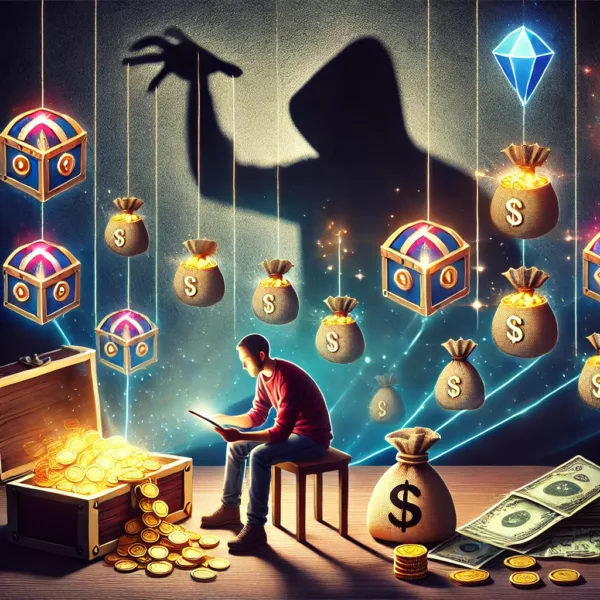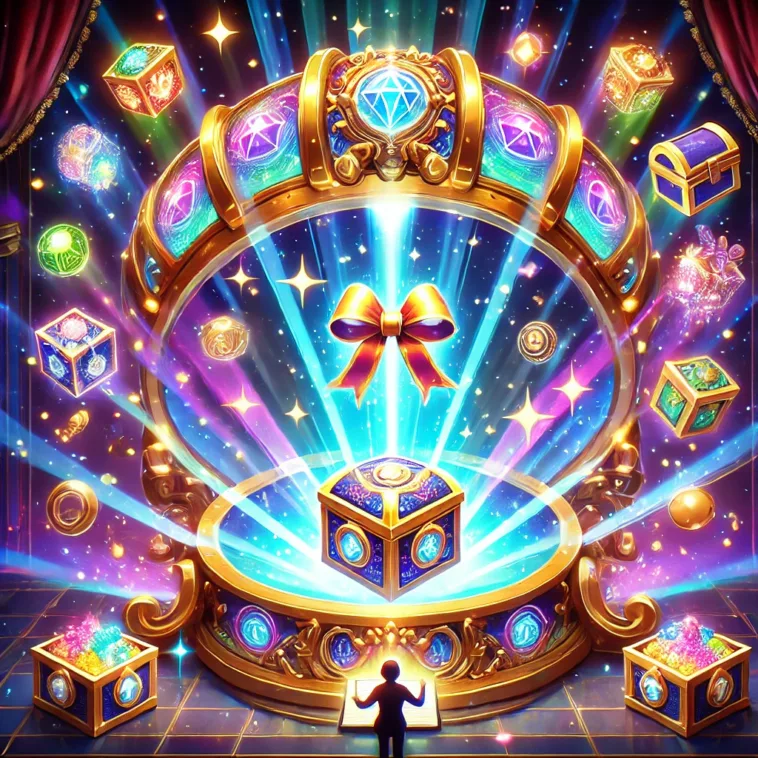Alright, gamers and parents, let’s talk about Infinity Nikki. This shiny, glittery game is gearing up to launch on PS5, PC, and mobile, and it’s wrapped up in the warm, cozy blanket of fashion and creativity. But peel back that sparkly exterior, and what you’ve got is the Vegas Strip of gaming: bright lights, endless pulls, and wallets crying in the corner.
Welcome to the world of gacha gaming, where you don’t pay to play—you gamble to play.
What’s Infinity Nikki All About?
At first glance, Infinity Nikki is an open-world dress-up game. Sounds harmless, right? You explore, you customize, you collect cute outfits. But here’s the catch: you don’t just get those cute outfits. You pull for them, one by one, through a system eerily similar to slot machines. It’s called a “gacha” system, and for the uninitiated, gacha means you’re paying (sometimes real money) for a randomized chance at getting something cool.
You want that rare gown with the shimmering sequins? That’ll be about 180 pulls. Want the same gown in pink? Another 180 pulls. For context, those pulls are often fueled by real money microtransactions.
And if you’re thinking, “That’s not so bad; I’ll just do a few pulls and get lucky,” congratulations—you’ve just walked into the gambler’s trap. Because every time you don’t get what you want, the game whispers, “Just one more pull. You’re so close.”
The Vending Machine Evolution
If this feels like a virtual casino disguised as a closet, you’re not wrong. The gacha system traces its roots back to those old-school vending machines—you know, the ones with little toys in plastic capsules? You’d shove in a quarter, crank the knob, and hope for the shiny red car instead of yet another sticker.
The difference? Those vending machines had limits:
- Physical space: There were only so many toys inside.
- Your wallet: You could only carry so many quarters.
- Reality checks: At some point, you’d realize you have no room for 20 plastic dinosaurs.
But in Infinity Nikki, there are no limits. It’s all virtual. There’s no physical reminder of how much you’ve spent, and worst of all, you don’t even own the items you “win.” The moment the servers shut down—and they will someday—your collection vanishes into the digital ether. Bye-bye, $500 wardrobe.
The Psychology of Gacha Games

Games like Infinity Nikki don’t just exploit your wallet—they exploit your brain. Here’s how:
- FOMO (Fear of Missing Out): Limited-time items, event-only costumes. The clock is ticking, and you have to get it before it’s gone.
- Gamblers’ Fallacy: “I didn’t get it this time, so my chances must be better next time!” Spoiler alert: They aren’t.
- Instant Gratification: Especially dangerous for younger players, whose brains are wired for quick rewards. Every pull is a dopamine hit, even if it’s just a duplicate scarf.
This isn’t just about gaming—it’s psychological warfare.
The Influence of Streamers
And then there are the influencers. You’ve seen them:
- “Watch me do 1,000 pulls live!”
- “OMG, I just got three 5-star drops in one go!”
But what they’re not telling you is how this works:
- Big-name streamers get subsidized accounts, so their pulls are funded by developers.
- They’re making money off viewer donations, ad revenue, and sponsorships.
- Even when they’re losing, they’re winning—because you’re watching, donating, and pulling right alongside them.
It’s like those casino Twitch streams where influencers play with house money. They rake in views, and you’re left thinking, “If they can do it, so can I.” Except you don’t have a sponsorship. You’re spending your own cash and eating 100% of the losses.
What Should Game Developers Be Doing Instead?
There’s a better way. Actually, there are three:
The Consumer-First Model
Include all costumes in the base game. Sell quarterly DLCs if you must. And for the love of everything sparkly, make the game playable offline so players don’t lose everything when servers go dark.The Transparent Microtransaction Model
Let players buy exactly what they want—no gambling, no “pity pulls.” Want the glittery ball gown? It’s $5. Want the matching tiara? Another $3. Keep the DRM online to prevent hacking, but don’t prey on your audience’s psychology.The MMO Subscription Model
Charge a monthly fee for full access. Players get everything during their subscription, and when they stop paying, they lose the extras. Add optional microtransactions for cosmetics, and you’ve got a fairer balance between developer profit and player experience.
Why Gacha Boxes Should Never Involve Real Money
Here’s the rule: If it’s random, it should never cost real money. Period. Gacha pulls should be fueled by in-game resources—whether that’s time played, login bonuses, or virtual currency. This keeps the fun intact without crossing into exploitative territory.
A Call for Ethical Game Design
The success of games like Infinity Nikki shows that gacha systems are here to stay, but that doesn’t mean they’re healthy for the industry or its players. Developers have a responsibility to create systems that entertain without exploiting, to build games that respect their audience instead of preying on their vulnerabilities.
Because at the end of the day, Infinity Nikki isn’t just a dress-up game. It’s a mirror reflecting the darker side of modern gaming—and it’s up to developers to change the reflection.



